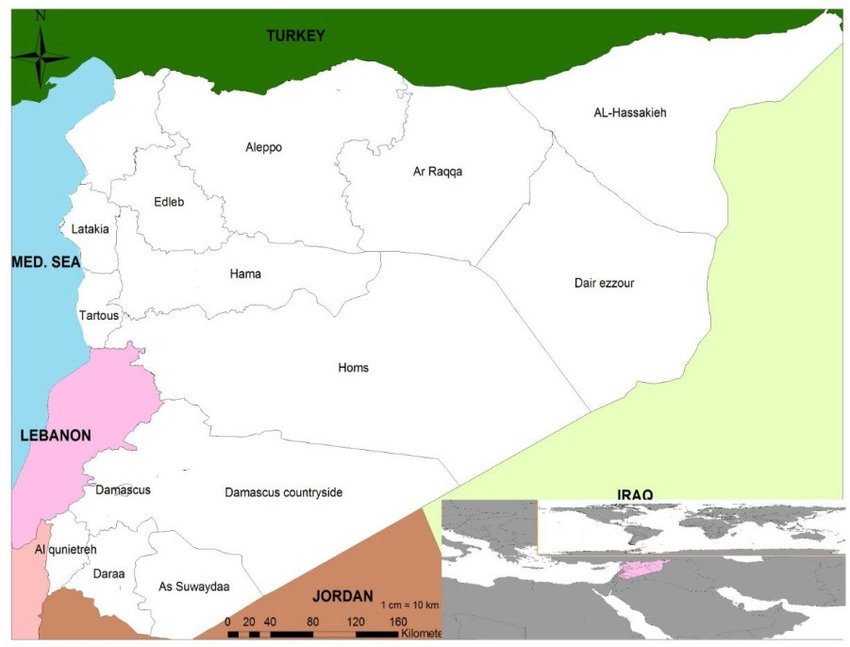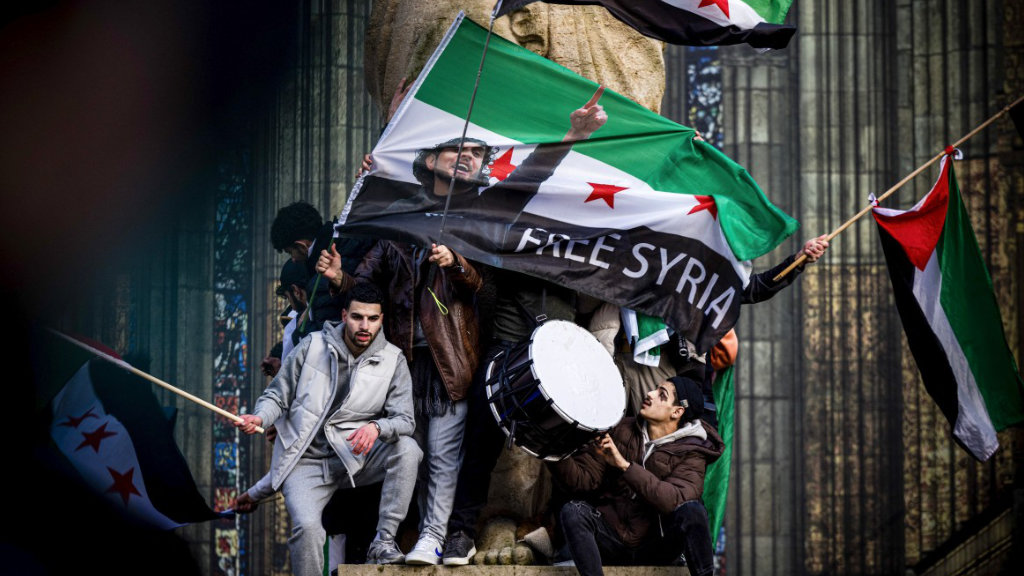The deposed Syrian President, Bashar al-Assad has arrived in Moscow with his family and has been granted asylum on ‘humanitarian’ grounds. Syrian militants, led by the Hayat Tahrir al-Sham (HTS) group, which has connections with Al-Queda, have apparently taken control of the country, although the situation remains fluid.
Moscow has called for the resumption of UN-led negotiations to resolve the Syrian crisis, while the Syrian Prime Minister has stated that the Syrian government (as was) is prepared to work with ‘any’ new leadership chosen by elections.
Numerous countries have vested interests in Syria, as the country is the only significant crude oil producing country in the Eastern Mediterranean region, which includes Jordan, Lebanon, Israel and the Palestinian territories. Syria has an estimated 2,500,000,000 barrels (400,000,000 m3) of petroleum reserves, mainly in the eastern part of the country in the Deir ez-Zor Governorate near its border with Iraq and along the Euphrates River, and a number of smaller fields located in the centre of the country.

Domestic Stresses
With Assad apparently gone, there has been a mass release by the Syrian militants of anti-Assad politicians and other members of Syrian society that could want to gain revenge against pro-Assad forces in the country. If armed, the country could descend into civil war. This would likely be extremely violent and lead to the fracturing of the country.
Israel
Syria’s energy reserves gives it special significance for Israel, whose troops have apparently entered Syria for the first time in 50 years. Syria’s oil and gas sector has long been sanctioned by the West. An Israeli take-over of these assets would not be resisted by Washington although it remains to be seen if Israel also intends to acquire territory in the Lebanon and Syria. If it did, a full-scale regional war would almost certainly develop.
Iran
Iran has also regarded Syria as a vital link in its anti-Jewish “Axis of Resistance”, which includes Lebanon, Yemen, and Palestinian groups. Syria served as a crucial logistical hub for arming Hezbollah and providing both political and economic support. Tehran also has interests in Syria’s eastern oil fields which are located close to the Iraqi border, and it will intend to influence the operations of these.
Türkiye
Ankara also has vested interests, although it will want to see a rapid return to stability. The issue concerning Syrian refugees in Türkiye has become a significant internal political situation for Ankara, which wants to see the estimated 3.6 million refugees in the country repatriated back to Syria. Türkiye shares a significant northern border with Syria and may want to annex or certainly de facto control part of these, in order to repatriate its Syrian refugee problem. Some of Syria’s energy reserves are also close to the Turkish border.
If Ankara was found to be complicit in supporting the Syrian militants, this may lead to a cooling of relations between Moscow and Ankara, particularly if Türkiye is found to have played a direct role in coordinating events in Syria, violating previous agreements with Moscow.
Russia
Russia’s oil and gas sector has significant investments in Syria, as well as large-scale investments in critical infrastructure, including the reconstruction of Tartus port, the modernization of Syrian fertilizer production, and the restoration of several oil and gas fields and refining plants. Moscow also invested heavily in the country following the Western-backed ‘Arab Spring’ which was intended to depose Assad in 2011. Russia has a further 40 investment projects within Syria, in sectors that are pivotal for the country’s reconstruction, including energy, (both electricity and oil), transportation infrastructure, housing, and industrial development.
Russia uses the Syrian port of Tartus as a Naval base and currently has warships stationed there. It also has a military airforce base at Khmeimim. There have been reports of weapons systems being transferred from Khmeimim to Tartus to prevent them falling into militants’ possession. Leaders of the Syrian militants have apparently assured the safety of Russian military bases and diplomatic missions operating in Syria, according to Kremlin officials.
Outcome
The West will want to see most of Syrian energy reserves in the hands of Israel, and used for the countries energy security as well as redevelopment of Palestine and Lebanon. It would place these territories under de-facto Israeli control. Iran would see this as a threat yet may be amenable if Syria’s eastern energy assets fall under its control. Turkiye, with 3.6 million Syrians to content with, will want to see a large number of these repatriated, although neither Israel nor Iran would be especially keen – unless it was agreed part of northern Syria fell under Ankara’s direct influence.
Russia doesn’t especially have a territorial card to play in this, although it will want to hold onto its Tartus port assets and investments – estimated at up to US$30 billion in value – remain in its possession. That however will be resisted by the West.
This is why Russia has called on immediate UN involvement to try and untangle the Syrian threads, some of which have the potential to create significant regional violence, and especially as concerns Iran. Interestingly, Russian President Putin held a phone conversation with Turkish President Erdogan on December 3, at Ankara’s request. Putin also spoke with Iran’s President, Masoud Pezeshkian and Assad the same day. These conversations apparently revolved around ‘agreements’ to hold coordination between the three countries to prevent further violence. It is unclear how much intelligence concerning an imminent collapse of Syria was discussed, however it seems likely.
These three countries are likely to be the main power brokers – along with US backed Israeli ambitions. If Russia, Iran and Turkiye are on the same page it could be relatively smooth. Yet how this will play out in actuality given Western third-party involvement remains fluid.
The main concern will be that Syria does not descend into the same situation as Libya – still involved in civil war years after the fall of the Gaddafi regime.
Related Reading
Russia – Syria 2024 Bilateral Relations: Update

 Русский
Русский













